-
 Bitcoin
Bitcoin $81,560.5117
-5.51% -
 Ethereum
Ethereum $1,771.5096
-6.33% -
 Tether USDt
Tether USDt $0.9997
-0.02% -
 XRP
XRP $2.0181
-5.66% -
 BNB
BNB $586.3042
-2.90% -
 USDC
USDC $0.9999
-0.01% -
 Solana
Solana $114.4035
-11.78% -
 Dogecoin
Dogecoin $0.1574
-8.81% -
 TRON
TRON $0.2356
-1.07% -
 Cardano
Cardano $0.6304
-7.98% -
 Toncoin
Toncoin $3.5817
-10.14% -
 UNUS SED LEO
UNUS SED LEO $9.4001
0.05% -
 Chainlink
Chainlink $12.4964
-9.88% -
 Stellar
Stellar $0.2554
-5.72% -
 Avalanche
Avalanche $17.9353
-7.12% -
 Sui
Sui $2.2095
-9.36% -
 Shiba Inu
Shiba Inu $0.0...01210
-4.11% -
 Hedera
Hedera $0.1588
-8.41% -
 Polkadot
Polkadot $3.9938
-3.88% -
 Litecoin
Litecoin $81.5008
-4.91% -
 MANTRA
MANTRA $6.3620
0.67% -
 Bitcoin Cash
Bitcoin Cash $295.0277
-4.58% -
 Dai
Dai $0.9999
0.01% -
 Bitget Token
Bitget Token $4.4599
-2.73% -
 Ethena USDe
Ethena USDe $0.9994
-0.05% -
 Pi
Pi $0.5677
-16.47% -
 Monero
Monero $209.1420
-4.72% -
 Hyperliquid
Hyperliquid $11.3307
-18.13% -
 Uniswap
Uniswap $5.6900
-8.31% -
 Aptos
Aptos $4.9771
-7.48%
How to safely create a Bitcoin wallet address
Bitcoin wallets store private keys, not Bitcoin; addresses are public for receiving funds, while private keys must be kept secret to prevent permanent loss of access.
Mar 30, 2025 at 11:14 pm
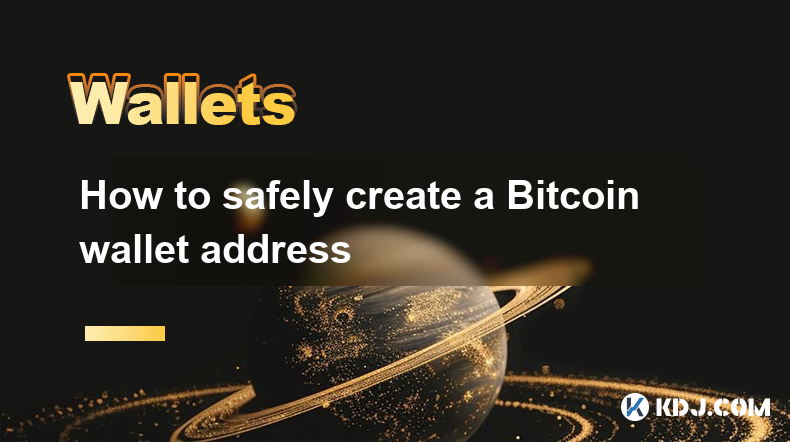
Understanding Bitcoin Wallet Addresses
A Bitcoin wallet doesn't actually store your Bitcoin. Instead, it stores your private keys, which are cryptographic codes that grant you access to your Bitcoin. Your Bitcoin wallet address, on the other hand, is a publicly visible string of characters that others can use to send you Bitcoin. Think of it like your bank account number – you give it to people to receive money, but your private key is like your PIN, which you must keep secret. Losing your private key means losing access to your Bitcoin permanently.
Choosing the Right Type of Bitcoin Wallet
Several types of Bitcoin wallets exist, each with its own security implications. The choice depends on your technical skills and security needs.
Software wallets: These are applications installed on your computer or mobile device. They offer varying levels of security depending on the specific software and its features. Popular options include Electrum and Exodus. Remember to download only from official sources to avoid malware.
Hardware wallets: These are physical devices that store your private keys offline. They are generally considered the most secure option, as they protect your keys from malware and online attacks. Examples include Ledger and Trezor. Always verify the authenticity of your hardware wallet before use.
Web wallets: These are online services that manage your Bitcoin for you. They are convenient but generally less secure than software or hardware wallets because they are accessible through the internet. Only use reputable web wallets with strong security features and a good track record.
Paper wallets: These involve printing your public and private keys on paper. While offering excellent security when stored properly, they are less convenient for regular transactions. Store your paper wallet in a safe, secure location, away from moisture and damage.
Step-by-Step Guide to Creating a Bitcoin Wallet Address (Software Wallet Example)
This example uses a hypothetical software wallet. The specific steps may vary depending on the wallet you choose. Always consult the official documentation of your chosen wallet.
Download and Install: Download the software wallet from the official website. Verify the authenticity of the download using checksums or other verification methods provided by the developer.
Create a New Wallet: Launch the software and follow the on-screen instructions to create a new wallet. You will likely be asked to create a strong password. Choose a strong, unique password that you won't forget. Use a password manager if needed.
Backup Your Seed Phrase: The software will generate a seed phrase (a list of words). This is crucial! Write down your seed phrase on paper and store it in a safe, secure location. Never store it digitally. Losing your seed phrase means losing access to your Bitcoin.
Receive Your Wallet Address: Once the wallet is set up, you'll see your Bitcoin wallet address. This is the address you'll give to others to send you Bitcoin.
Verify Your Address: Before using the address, double-check that it's correct. A single wrong character can result in lost funds.
Security Best Practices for Your Bitcoin Wallet
Strong Passwords: Use strong, unique passwords for all your wallets and accounts.
Regular Software Updates: Keep your software wallets updated to the latest version to benefit from security patches.
Antivirus Software: Use reputable antivirus software on your computer to protect against malware.
Two-Factor Authentication (2FA): Enable 2FA whenever available to add an extra layer of security.
Offline Storage: For long-term storage, consider using a hardware wallet or paper wallet to keep your private keys offline.
Multiple Wallets: Consider using multiple wallets to separate funds for different purposes.
Understanding Private Keys and Public Keys
Your Bitcoin wallet holds two crucial cryptographic keys:
Private Key: This is a secret code that proves your ownership of the Bitcoin. Never share your private key with anyone.
Public Key: This is derived from your private key and is used to generate your Bitcoin address. It's safe to share your public key (your Bitcoin address).
What if I lose my private key?
If you lose your private key, you lose access to your Bitcoin. There is no recovery process. The importance of securely backing up your seed phrase cannot be overstated.
Frequently Asked Questions
Q: Is it safe to use a web wallet?
A: Web wallets are convenient but generally less secure than software or hardware wallets due to their online nature. Use only reputable web wallets with strong security features.
Q: What is a seed phrase?
A: A seed phrase is a list of words that acts as a backup for your private keys. It's crucial to write it down securely and keep it safe.
Q: How do I choose a secure Bitcoin wallet?
A: Consider your technical skills and security needs. Hardware wallets are generally the most secure, while software wallets offer a balance of security and convenience. Web wallets are the least secure option.
Q: What should I do if I suspect my wallet has been compromised?
A: Immediately change your passwords, secure your seed phrase, and contact the wallet provider's support if applicable. Monitor your transactions closely.
Q: Can I recover my Bitcoin if I lose my wallet?
A: If you lose your private key or seed phrase, you cannot recover your Bitcoin. This highlights the importance of securely storing your backup.
Q: Are all Bitcoin wallets the same?
A: No, Bitcoin wallets vary significantly in their security features, user interfaces, and functionality. Research different options before choosing one.
Q: How often should I back up my wallet?
A: Back up your wallet immediately after creating it and regularly thereafter. The frequency depends on how often you use your wallet and how much Bitcoin you hold. Consider backing up your seed phrase at least once a month.
Disclaimer:info@kdj.com
The information provided is not trading advice. kdj.com does not assume any responsibility for any investments made based on the information provided in this article. Cryptocurrencies are highly volatile and it is highly recommended that you invest with caution after thorough research!
If you believe that the content used on this website infringes your copyright, please contact us immediately (info@kdj.com) and we will delete it promptly.
- VanEck Has Made a Big Move in Bringing a Binance Coin BNB/USD ETF to the United States
- 2025-04-04 02:25:12
- 3 Low-Cap Altcoins with Insane Potential in 2025: Dawgz AI ($DAGZ), Render (RNDR), and Sei (SEI)
- 2025-04-04 02:25:12
- A major Solana ($SOL) whale has returned to the spotlight after transferring substantial funds to Binance in two separate batches.
- 2025-04-04 02:20:11
- The U.S. Senate Banking Committee has voted to approve Paul Atkins' nomination for the role of Chair of the Securities and Exchange Commission (SEC).
- 2025-04-04 02:20:11
- Pepe Coin (PEPE) Demonstrates Remarkable Growth
- 2025-04-04 02:15:12
- We Asked AI to Predict Litecoin (LTC) Price in Q2 2025 Following Fidelity's Crypto IRA News
- 2025-04-04 02:15:12
Related knowledge
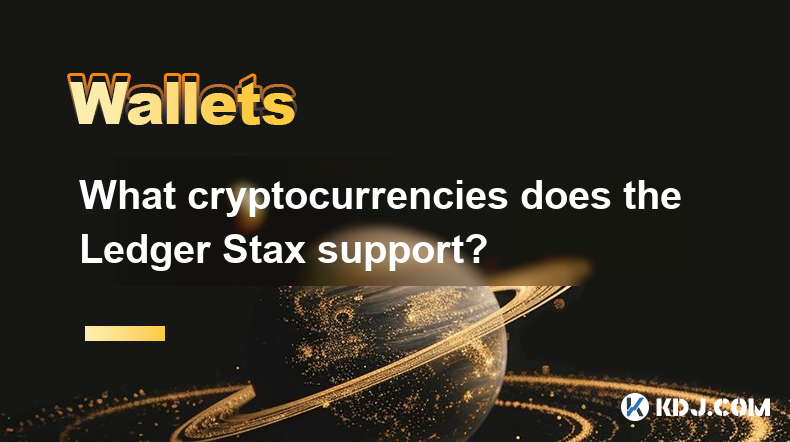
What cryptocurrencies does the Ledger Stax support?
Apr 04,2025 at 02:00am
The Ledger Stax is a highly advanced hardware wallet designed to provide secure storage for a wide range of cryptocurrencies. It is essential for users to understand which cryptocurrencies are supported by the Ledger Stax to ensure they can manage their digital assets effectively. In this article, we will explore the various cryptocurrencies that the Le...
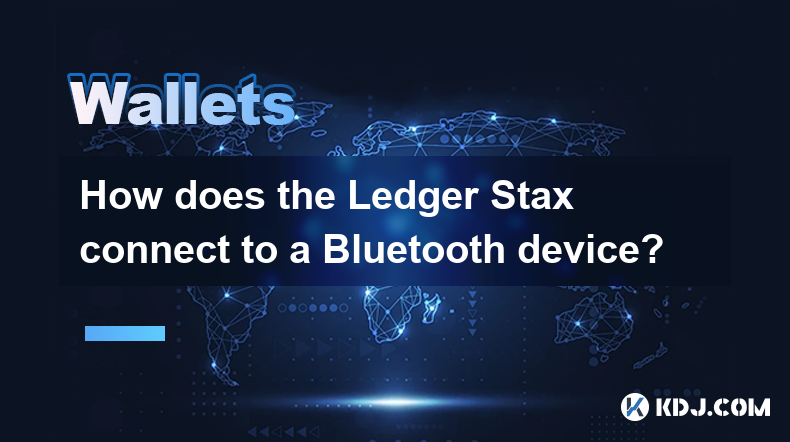
How does the Ledger Stax connect to a Bluetooth device?
Apr 03,2025 at 11:07pm
Introduction to Ledger Stax and Bluetooth ConnectivityThe Ledger Stax is a cutting-edge hardware wallet designed to provide secure storage for your cryptocurrencies. One of its key features is the ability to connect to other devices via Bluetooth, which enhances its usability and convenience. In this article, we will explore in detail how the Ledger Sta...
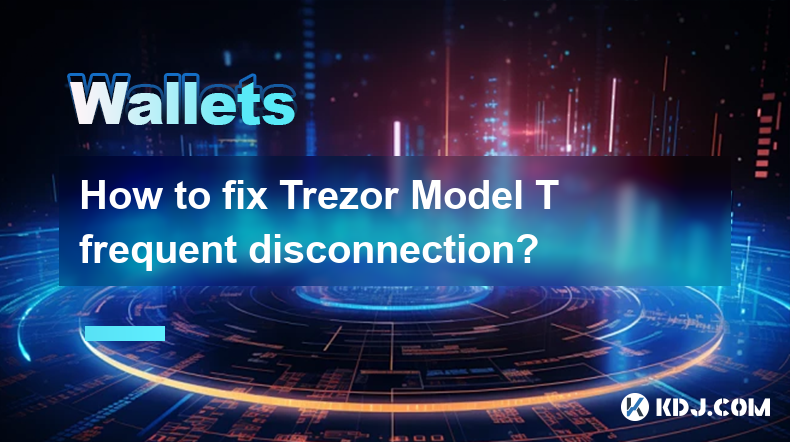
How to fix Trezor Model T frequent disconnection?
Apr 04,2025 at 01:01am
Introduction to Trezor Model T Disconnection IssuesThe Trezor Model T is a popular hardware wallet used by cryptocurrency enthusiasts to securely store their digital assets. However, some users have reported experiencing frequent disconnections, which can be frustrating and potentially compromise the security of their transactions. In this article, we w...
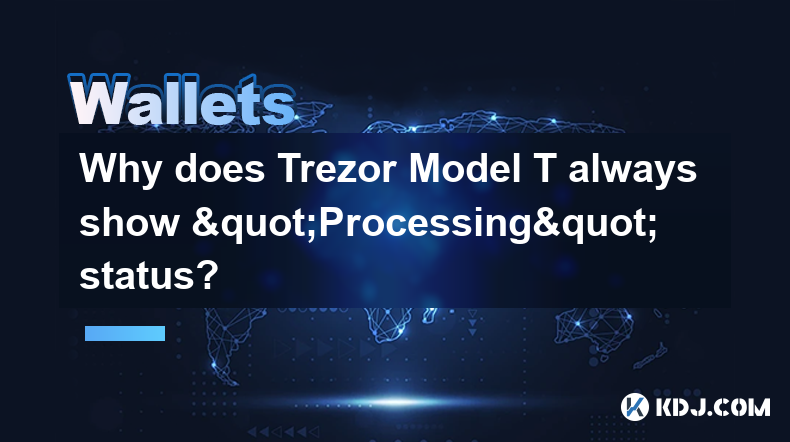
Why does Trezor Model T always show "Processing" status?
Apr 04,2025 at 01:07am
Introduction to Trezor Model TThe Trezor Model T is a popular hardware wallet designed to securely store cryptocurrencies. It is known for its robust security features and user-friendly interface. However, some users have reported encountering a persistent 'Processing' status on their device, which can be frustrating and confusing. This article will exp...
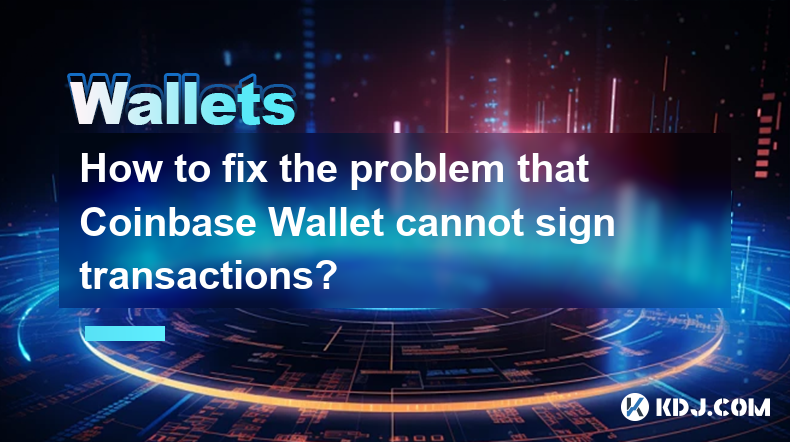
How to fix the problem that Coinbase Wallet cannot sign transactions?
Apr 04,2025 at 02:28am
When using the Coinbase Wallet, users may occasionally encounter issues where they cannot sign transactions. This can be frustrating, especially when you need to move funds or interact with decentralized applications (dApps). In this article, we will explore various solutions to fix the problem of Coinbase Wallet not being able to sign transactions. Und...
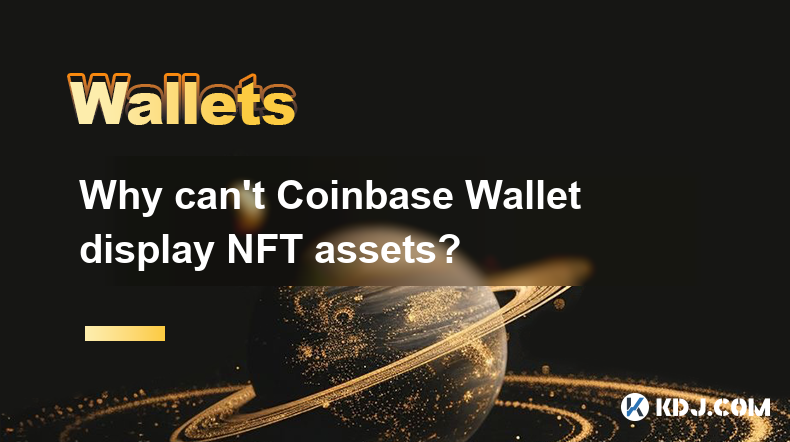
Why can't Coinbase Wallet display NFT assets?
Apr 03,2025 at 10:01pm
Why can't Coinbase Wallet display NFT assets? The inability of Coinbase Wallet to display NFT assets is a common issue among users who are looking to manage their non-fungible tokens directly through the wallet. This problem can stem from several reasons, which we will explore in detail. Understanding these reasons is crucial for users to better manage ...

What cryptocurrencies does the Ledger Stax support?
Apr 04,2025 at 02:00am
The Ledger Stax is a highly advanced hardware wallet designed to provide secure storage for a wide range of cryptocurrencies. It is essential for users to understand which cryptocurrencies are supported by the Ledger Stax to ensure they can manage their digital assets effectively. In this article, we will explore the various cryptocurrencies that the Le...

How does the Ledger Stax connect to a Bluetooth device?
Apr 03,2025 at 11:07pm
Introduction to Ledger Stax and Bluetooth ConnectivityThe Ledger Stax is a cutting-edge hardware wallet designed to provide secure storage for your cryptocurrencies. One of its key features is the ability to connect to other devices via Bluetooth, which enhances its usability and convenience. In this article, we will explore in detail how the Ledger Sta...

How to fix Trezor Model T frequent disconnection?
Apr 04,2025 at 01:01am
Introduction to Trezor Model T Disconnection IssuesThe Trezor Model T is a popular hardware wallet used by cryptocurrency enthusiasts to securely store their digital assets. However, some users have reported experiencing frequent disconnections, which can be frustrating and potentially compromise the security of their transactions. In this article, we w...

Why does Trezor Model T always show "Processing" status?
Apr 04,2025 at 01:07am
Introduction to Trezor Model TThe Trezor Model T is a popular hardware wallet designed to securely store cryptocurrencies. It is known for its robust security features and user-friendly interface. However, some users have reported encountering a persistent 'Processing' status on their device, which can be frustrating and confusing. This article will exp...

How to fix the problem that Coinbase Wallet cannot sign transactions?
Apr 04,2025 at 02:28am
When using the Coinbase Wallet, users may occasionally encounter issues where they cannot sign transactions. This can be frustrating, especially when you need to move funds or interact with decentralized applications (dApps). In this article, we will explore various solutions to fix the problem of Coinbase Wallet not being able to sign transactions. Und...

Why can't Coinbase Wallet display NFT assets?
Apr 03,2025 at 10:01pm
Why can't Coinbase Wallet display NFT assets? The inability of Coinbase Wallet to display NFT assets is a common issue among users who are looking to manage their non-fungible tokens directly through the wallet. This problem can stem from several reasons, which we will explore in detail. Understanding these reasons is crucial for users to better manage ...
See all articles






















































































